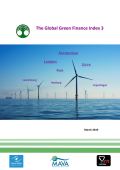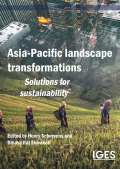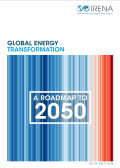
The third edition of the Global Green Finance Index (GGFI 3) measures finance professionals’ perceptions of the quality and depth of green financial offerings across 110 international financial centres.

This report examines the cost of economic growth on land, biodiversity, and ecosystem services in Asia-Pacific. It argues that creating a vision of sustainable landscapes can guide policymaking and administration towards more effective cross-boundary management of interdependent ecosystems.

Increased use of renewable energy, combined with intensified electrification, could prove decisive for the world to meet key climate goals by 2050. This study highlights immediately deployable, cost-effective options for countries to fulfill climate commitments and limit the rise of global temperatures.
This Country Planning Framework (CPF) sets the strategic direction for the Global Green Growth Institute (GGGI) in Mongolia over the period 2016-2020.
This Country Planning Framework (CPF) sets the strategic direction for the Global Green Growth Institute (GGGI) in Rwanda over the period 2016-2020.
